| Profile | Posted by | Options | Post Date |

|
Maryanna
|
Report
|
7 Jul 2013 11:04 |
|
I like that Sue, lovely words.
My beloved Nana used to call me an old story teller, when as a child I would have a moan about something, like being hungry or cold when I was really after a bit of attention.
Always said in a loving way and usually with a cuddle, but maybe she set the way to come for me.
I just wish I had listened a bit more to her stories and certainly should have asked more questions.
M
|
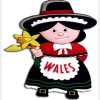
|
JemimaFawr
|
Report
|
7 Jul 2013 11:08 |
|
Sue,
My Great Aunt married into nobility, and while searching records of her husbands family I accidentally accessed the Census of Queen Victoria and her household!!!!
The relative was an Equerry!!!!
|
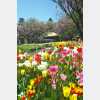
|
SueMaid
|
Report
|
7 Jul 2013 11:12 |
|
How interesting Jemima :-)
|
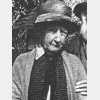
|
maggiewinchester
|
Report
|
7 Jul 2013 11:18 |
|
I wish someone would introduce me as the family historian.
The nearest my siblings get to it is 'This is Maggie, the hoarder of cr*p'
BUT my brothers were chuffed to bits when I gave them back their original Maltese birth certificates (found in mum's stuff). Unfortunately I forgot to copy them first :-(
|
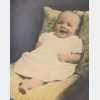
|
LadyScozz
|
Report
|
7 Jul 2013 11:36 |
|
that's lovely Sue. I'll "borrow" it.
lol @ maggie W........ I get the same......... along the lines of "she knows more about the dead ones"
I have a Tshirt, black with white letters......... I SEEK DEAD PEOPLE.... in smaller letters under that...... I'm a Genealogist. I HAD to buy it! It doesn't claim I'm a professional, it's just a bit of fun.
:-D
|

|
SueMaid
|
Report
|
7 Jul 2013 11:37 |
|
My brother is the only sibling who is interested in my research.
My husband's family don' t believe my research. They insist that their mother was born in Wales even though I have proof that she wasn't.
|

|
JemimaFawr
|
Report
|
7 Jul 2013 11:52 |
|
None of my family are interested in my research either Sue!!! I thought it would be a way of bringing us closer together!
My husband is supportive though, and actually takes me to Pembrokeshire "Grave Digging". As I now have in excess of 3 thousand people on my tree though, he struggles to keep up with who's who!! I'm now starting to lose the plot too, as my Maternal grandmother's ancestors in Kent are huge! :-S
People tend to believe family stories, even when you have proof that they are wrong, but like Chinese Whispers, they can change over the years!
I started my research hesitantly, as the family legend had it that we were descendants of Jemima Nicholas, the Welsh heroine(Hence my Board Name). I was very scared as I did not want to find out it was wrong. Although there is no evidence that she ever married and had children (although some claim descent from illegitimate children) I did prove that she was my 5x Great Aunt, much to my relief! :-D :-D
|
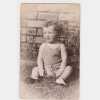
|
AnnCardiff
|
Report
|
7 Jul 2013 12:01 |
|
I too have written part of my life story growing up during the war - the article is on the Whitchurch and Llandaff North website
I also did one on my Dad and his growing up as a child - that also is on the website
Through those two articles - which had my email address on them [since changed] relatives on my maternal line and paternal line both got in contact!!
At the last family funeral I attended on my mother's side I took along all I had on the Breakspear family tree - such interest was shown - and now I find that two first cousins in that line are now doing the tree as well
My Dad was a wonderful storyteller and I remember it all so vividly
|

|
SueMaid
|
Report
|
7 Jul 2013 12:06 |
|
Ahhh.....family stories :-D
My father in law told me that gardening was in his genes. He told me his uncle had won prizes for his flowers and veggies. He was right as I found out by reading articles in newspaper archives. Being a member of the gardening committee may have helped - his wife won prizes for her flower arrangements too :-D
I have found some truth in family stories, a few half-truths and some stories that are completely wrong :-D
|

|
SueMaid
|
Report
|
7 Jul 2013 12:09 |
|
Ann - didn't you put your memoirs on this board awhile back?
|

|
AnnCardiff
|
Report
|
7 Jul 2013 12:19 |
|
yes I did - childhood memories or something like that
|

|
SueMaid
|
Report
|
7 Jul 2013 12:21 |
|
I remember Ann - beautifully written :-)
|

|
AnnCardiff
|
Report
|
7 Jul 2013 12:30 |
|
thank you very much <3
|

|
AnninGlos
|
Report
|
7 Jul 2013 12:33 |
|
I have found that grandchildren show a mild interest in some family history and they have also liked to read my life story. I hope when they are older (3are in their 20s), they will renew their interest.
|

|
AnnCardiff
|
Report
|
7 Jul 2013 12:33 |
|
I was born in Whitchurch, my father being a member of a family of tinplate workers from Melingriffith. My grandfather, David John Williams was superintendent of the tinplate works and my father, Harman Williams, and his six brothers all served their apprenticeships at the works. His four sisters did not work! When I was around three years old my parents moved to a little cottage on Thornhill Road - Baytree. It’s still there on the side of the road having been saved from demolition when the M4 was built. We picked mushrooms in late summer and early autumn, blackberries in the summer, nuts in the autumn, primroses in spring and we knew where there were damson and crab apple trees for making jam. An idyllic childhood with all sunny summers and snowy winters. That’s how I remember it anyway. The snow of 1947 when I was eleven was particularly memorable because it was so deep we couldn’t see out of the cottage windows when we got up in the morning.
My mother, Hilda [nee Breakspear] was born in another cottage on Thornhill. This was Rose Cottage which was one of a pair of semi-detached cottages which were sited just before the entrance to the crematorium. Mum was born in the inside of the two cottages, and in the outside cottage lived a Mr and Mrs Jones. Old Mrs Jones had been a warder in Cardiff Prison and accompanied the last female prisoner to be hanged when she went to the gallows!
There was another little cottage further down the road called Primrose Cottage. This was a thatched cottage and stood at the end of the lane which ran up to Heol Llanishen Fach Farm. The farm is still there but now in the middle of a modern housing estate. The farmer was Ivor Llewellyn and I was friendly with his daughter Ann. Her brother now lives in America and last I heard he was very involved in a Welsh Society out there.
We had no bathroom and no hot water so on Friday nights, bath night, the tin bath was brought in from it’s hanging place on the outside wall of the cottage and the gas boiler filled up to heat the water. Youngest got to use the bath first. It was a bit like a Chinese water torture in a way because the kitchen roof was galvanised iron and the steam condensed on the roof sand then dripped back icy cold on you in the bath! I suppose people pay a lot of money for such treatment in health spas these days!
For me, Rhiwbina school was sheer paradise. I was an only child for seven years and therefore had no other children to play with so I couldn’t wait to get to school, even though it was a very long walk for little legs [with obligatory gas mask hanging around my neck]. No Heol Llanishen Fach in those days so it was down to Beulah Road and then back up Heol y Deri to the school. Standard packed lunch in the summer was always tomato sandwiches, because that was the cheapest and you could grow them at home. To this day the very smell of a tomato sandwich transports me back to my days in Rhiwbina school!
My late great aunt, Bronwen Harman was a teacher at the school when it first opened. Auntie Bron was my paternal grandmother’s sister and she lived in Tongwynlais. I am rather puzzled as to how she travelled back and forth to Rhiwbina school as she lived on Merthyr Road in Tongwynlais! A mystery. She retired before I started school. When I passed the scholarship in Rhiwbina school I passed for Penarth and this was an incredibly long journey for me. Leaving the house at 7:30 am to walk to Birchgrove Halt, then to either Queen Street or the General where I changed for the Penarth train [steam of course] and then the walk from Penarth station to the school. I got home in the dark after a long lonely walk up Thornhill in the winter months.
continued
|

|
AnnCardiff
|
Report
|
7 Jul 2013 12:33 |
|
Food rationing only affected me as far as sweet rationing went - that was a blow, but my Mum was pretty innovative and made sweets for me. Sometimes we would shout at American soldiers in the back of lorries “Got any gum chum!“ and invariably they would throw some out for us. Mum could turn her hand to almost anything, even skinning rabbits, and feathering the pheasants my Dad shot in the area that is now mostly crematorium.
We had plenty of fresh meat even if it meant that at the end of every meal there was a little row of lead pellets on the edge of the plate! Must have swallowed some I suppose. Dad grew all our vegetables, Mum made all our clothes. Dad skinned a few rabbits in an attempt to make us mittens and there were usually some petrified animal skins nailed to the outhouse door! Never worked though. I think he fancied himself as a sort of Davy Crockett or Crocodile Dundee!
Fresh milk was delivered by Jack Rees, our local farmer from Pant-y-Scawen farm. He used to arrive in his cart pulled by Ginger the carthorse. Milk was measured out from churns on the cart and put in a jug my mother left on the door step. Water came through to the kitchen from a spring across the road. In summer when the level dropped we had to go down to the spring and collect water in a bucket. The water was gorgeous and on hot days we used to get cycling clubs calling in for glasses of water.
Groceries, with a ration book, came from Mr Burden in the Classic Stores at the crossroads. Butter was cut from a large block and wrapped in greaseproof paper. Sugar from a large bag weighed out into small blue bags, tea likewise. Biscuits came from a large deep tin and put into paper bags after weighing. All along the front of the counter were open sacks full of dog biscuits. I tried one of these one day - not nice!
The war affected us inasmuch as German war planes used Thornhill Road as a guide to the R.O.F. factory at the crossroads. Even at the age of five I could differentiate between British and German planes by the sound of the engines. We had loads of tents erected on the sides of Thornhill Road and these housed American soldiers guarding petrol dumps. Only black Americans - seems white Americans were too good to be housed in tents! These guys were absolute gentleman and were so polite to my mother who was only in her twenties. They were also very generous as they had better food than we were getting and they often gave my mother some items that we could only dream of.
I recall one day a convoy of American tanks came up the road heading towards Caerphilly. They stopped and asked my Dad if they were going the right way for Newport. Dad said they needed to go back into Cardiff and go east, so they turned everything around. Such a noise and such a mess and when they eventually moved off there were no grass verges left in our part of the road because the tanks had churned them to mud! When Mum asked Dad what had been going on and he told her what had happened she pointed out that they could have got to Newport via Caerphilly!
We had an evacuee billeted on us. She was a young girl around nine or ten years old and had been bombed out in Birmingham. A double decker bus had arrived at our house and it was full of evacuees and my mother was told to go out and choose one! She decided she’d get a five year old as company for me. She brought this little girl into the house and the bus waited outside. However, once inside this little girl just stood there and screamed and cried. Some of these children must have been mentally scarred for life with experiences like this. I couldn’t understand why she was crying, I was too young to understand, but Mum had to take her back and we got Doreen instead.
Doreen stayed with us for quite a while and came to Rhiwbina school with me. The plus side of this was that Birmingham City Council paid for a taxi to take her to and from school and of course I went too, so for a while I no longer had to do that long walk. Every time there was a raid poor Doreen would shake and turn white. We all used to sit in the pantry which was situated under the stairs and wait for the all clear. I only ever went in an air raid shelter once and that was in Cardiff Castle when me and Mum were in town one day and an air raid occurred.
After a night raid by German planes we would go out next morning and look for shrapnel. Not really sure why, but shell cases seemed to be prized as they were made of brass and looked quite good as ornaments. Also we used to find what looked like strips of silver paper everywhere. Something to do with blocking radar I think. It was illegal to keep anything you found - you were obliged to hand it to the police.
However, my mother and I had a particularly “good” find one morning when we came across a unexploded incendiary bomb. Foolishly my mother stuck it under her coat and home we went. She put it under the sideboard to wait for my Dad to come home from work. Imagine - he had just cycled up hill all the way from John Williams down the docks on a hot summer day to be excitedly told by me that we had a bomb under the sideboard! I can remember it even now and could draw a picture of it - it had a small propeller in the rear end. And what did he do? He decided to dismantle it and see how it worked! After dismantling it he took the detonator into work and they all sat around the brazier at lunchtime wondering what kind of an explosion it would make. Then some bright spark said “There’s one way to find out and threw it in the brazier”. Dad said he’d never seen so many spilled cups of tea and sandwiches trodden into the ground as men leapt this way and that. Old men could have qualified for the Olympics jumping over lathes! It only went “pop” apparently. How I survived my childhood is a miracle considering Mum and Dad appeared to be rather foolhardy!
No television of course, we didn’t get one until the coronation. We didn’t have electricity anyway, only gas lamps downstairs and candles upstairs. Our radio was run on a battery which contained acid which had to be replaced from time to time. This meant carrying the battery all the way to Heol-y-Deri where there was a shop which would top it up. I took it one winter day when there was thick snow around Baytree. I thought it would be a good idea to put it on the sledge that my Dad had made for me. It was a heavy one because he had put steel runners on it to make it go faster. I realised what a bad idea this was when I got to the crossroads - there was no snow down there!
We used to go to the Monico cinema, usually once a week. Walked there and back because the bus service to Thornhill was extremely sparse. On the way home we would make as diversion down to Hill’s Fish and Chip shop at Birchgrove and eat them on the way home.
I could go on and on but you’ve probably glazed over by now!
|

|
AnnCardiff
|
Report
|
7 Jul 2013 12:34 |
|
My lovely Dad and Melingriffith by Ann Sullivan (nee Williams)
My lovely Dad was Harman Williams, born at Melin House, Melingriffith, 5th August 1913. He was one of a family of eleven children born to Jennet Ann and David John Williams. Grandad Williams was superintendent of the Melingriffith Tinplate Works and they all lived in a very large house [had to be with thirteen of them!] and were locally referred to as Williams the gate, because theirs was the only house that sported a gate! and to differentiate them from the other Williams in the area.
Dad was called Harman because that was his mother’s maiden name. She was born in the 1800’s in a little cottage in Tongwynlais on the right hand side of Merthyr Road just past the Lewis Arms - those little cottages with the railings outside. I wish I knew which one but there’s no one to tell me now.
Dad was the youngest but one of seven boys and he had four sisters. The boys were Harold, Harry, Charlie, Les, Cyril, Harman and David John who was known as Jack. The girls were Nancy, Margaret, Ella and Betty. There had been another little girl called Nancy but she had died in infancy and when the next little girl was born all the children said “We’ve got another Nancy” so Nancy she was called. Margaret is miraculously still alive and will be one hundred years old next month and she lives in a nursing home in Poole, Dorset.
The boys went to school in Tyn y Pwll Road - Dad stressed that Whitchurch and Melingriffith were entirely separate from each other. Often when walking home from school they would catch sight of a man they called George the Oil. He had a horse and cart which delivered oil, presumably for oil lamps, to all the houses in the area. The children would run after the horse and cart all the way home to Melingriffith and were very out of breath by the time they reach Melin House. Cyril and Dad were both asthmatic and their mother would get very angry with them because they were gasping for breath on arrival and took hours to recover!
Dad described Nancy as a bit of a social butterfly - what that meant exactly I don’t know. None of his sisters worked when they were young and Nancy actually had a motorbike - something called an Indian which she rode around Whitchurch. She married a chap called Reg Arthur and they had the ironmongers shop in Taffs Well. Nancy used to play the piano for the silent films in the Rialto Cinema in Old Church Road.
Dad told me a story of how on Halloween he and his brother Cyril, who were about seven and eight years old at the time were dressed up in white sheets and covered in flour by their Mum and went out “haunting”. They walked down by the canal which had some little hump back bridges over it. They decided to cross over the bridge to the other side from the road and when they heard footsteps approaching, would hover up over the bridge through the mist which had settled over the canal and make moaning sounds to frighten people.
|

|
AnnCardiff
|
Report
|
7 Jul 2013 12:36 |
|
continued
This unfortunately had catastrophic results. The woman who was walking down the path had recently lost her brother off that bridge when he had committed suicide off it. How were they to know that she would be the first person to come along! The screams were horrendous apparently as she picked up speed, running like something possessed to her house in Velindre Road. They in turn were absolutely petrified and ran straight home telling their mother what had happened. She realising the gravity of the situation cleaned the flour off them, removed the sheets and sent them back out to see what was happening. Well by the time they got back to the scene of the crime a mob of angry men had formed a kind of posse to seek out these heartless villains and sort them out! Dad and Uncle Cyril decided the best thing to do was to join the posse. Dad said he recalled walking up Velindre Road and seeing the poor lady in her front room, lying back in a chair being ministered to by various do gooders who were comforting her. The whole incident was written up in the local newspaper the next day and my Gran warned them never to tell anyone it was them and they never did. I do know the name of the lady in question but even though she is now long since dead even I would be afraid to divulge the name!
Sadly Jack was killed at the beginning of the first world war in Germany and his name is on the war memorial at the library in Whitchurch. The family had always thought Jack was killed by a sniper and had no grave but I found out a few years ago that in fact he was killed while crossing a field with the rest of his unit near Mametz woods. Germans hiding in the woods opened fire and killed them all. Jack was buried in that field. However, some time later the burial ground was blown up and that is why Jack’s name is on the Menin Gate as having no grave. I did visit the Menin Gate and searched for his name, but for anyone who has visited the site will know, there are literally thousands upon thousands of names listed from all countries in the commonwealth and I failed to find it. His sister Margaret was so pleased to know that he did in fact have a proper burial initially. Jack had joined the Melingriffith Volunteer Cadet Force before the war started and so here was a ready made unit ready to go to war and this is why he was in at the very beginning.
Harold enlisted on the 23rd August 1914 as a driver in the Army Service Corps, 2nd Division, 46th Company, 5th Brigade Cavalry Supply Column of the British Expeditionary Force. The diary is very interesting and I have a copy of it, having sent the original to the Imperial War Museum as I felt I had no right to keep it. I did try to trace some of my cousins [he had ten children apparently, none of whom I ever knew] but I did know he moved to Malpas in Gwent and tried to make contact through the South Wales Argos with no luck at all.
Considering that in the whole year this diary was written he got no further than Marseilles and saw no military action, but they all suffered appalling deprivation with regard to food and accommodation that it is quite unbelievable. Sleeping on straw in barns and having little food and at one point had no facilities for bathe for months. He refers to a man called Evan from The Mount going to hospital with diphtheria, Farringeson with tonsillitis and a chap from Porth called Burridge being taken to hospital with pneumonia with the Red Cross man giving little hope of his survival. This all happened in Marseilles.
It really is very sad indeed, but I have to say that Harold was a survivor and had a sort of Del Boy instinct for survival and things looked up for him when he was put on security on the docks giving him the opportunity to steal what he needed to survive. If anyone wanted a copy of this diary I would be only to pleased to let them have a copy - I know it is of enormous interest to the many people who study the first world war. Charlie joined the Royal Flying Corps - lucky to do so I imagine as you needed money to get in there.
As children they had an idyllic life at Melingriffith, learning to swim in the feeder which was so clean then and swinging from ropes on the high branches of the trees in the Long Wood. Dad said they were like Tarzans swinging through the trees out over the canal, sometimes dropping from great heights when the ropes broke!
Cyril and Les were courting two sisters from the garage on Llantrisant Road so they had a boat which they rowed across the river and then walked across the fields to meet their sweethearts in Radyr, both of whom they eventually married.
My Dad absolutely loved the canal all his life and when he was too frail to walk down there from Llancaiach Road where we eventually moved, I used to drive him down there on fine days and leave him there for hours. He loved carving sticks in the most beautiful patterns and I am pleased to say I still have one of them, and a beautiful photograph of him doing the carving. This was taken by an amateur photographer who was down the canal one afternoon. Apparently the photograph was entered into a competition and won! Dad could also make wooden whistles and he taught me how to throw ducks and drakes at the bottom of the weir with those lovely flat pebbles that collect a the foot of the weir.
I have a delightful photograph of Dad when he was about ten or eleven years old sitting on the well opposite New Houses with all the other children in the area. The well is still there but now it’s descended into a pile of rubble so I doubt whether many people know what it actually is. I feel it should have been preserved.
He said that on Fridays when the men at the tinplate works got paid the children would take buckets of spring water over to the men as they came out from work in Summer months and usually they got some pennies for doing this - they only did it on pay days - how mercenary!
There were many horrific accidents at the works. I should imagine Health and Safety was a bit of a non-issue in those days. Cyril had his thumb pulled out completely by one of the machines which rolled the tinplate. He said he felt no pain in his hand at the time, only in his elbow when the sinew was pulled away! Ugh!
Some people were actually pulled into the rollers and killed and some had their feet sliced off by sheets of tinplate. Imagine these days if that happened you would be in for millions in compensation but in those days you probably got nothing and lost your job and livelihood into the bargain.
|

|
SueMaid
|
Report
|
7 Jul 2013 12:42 |
|
More please!!!
|

|
JemimaFawr
|
Report
|
7 Jul 2013 12:45 |
|
What a Great Read Ann!!!
Get a book published!!!! Jem :-) <3
|

